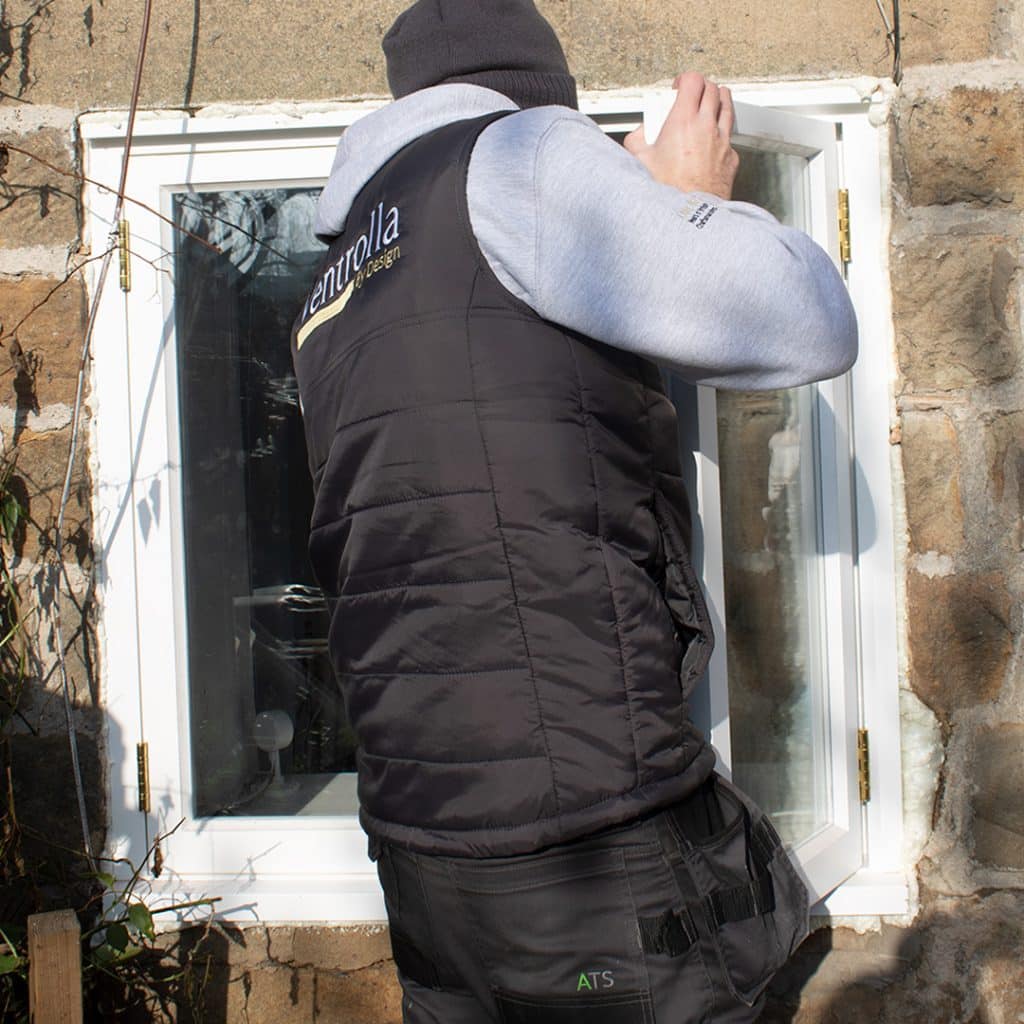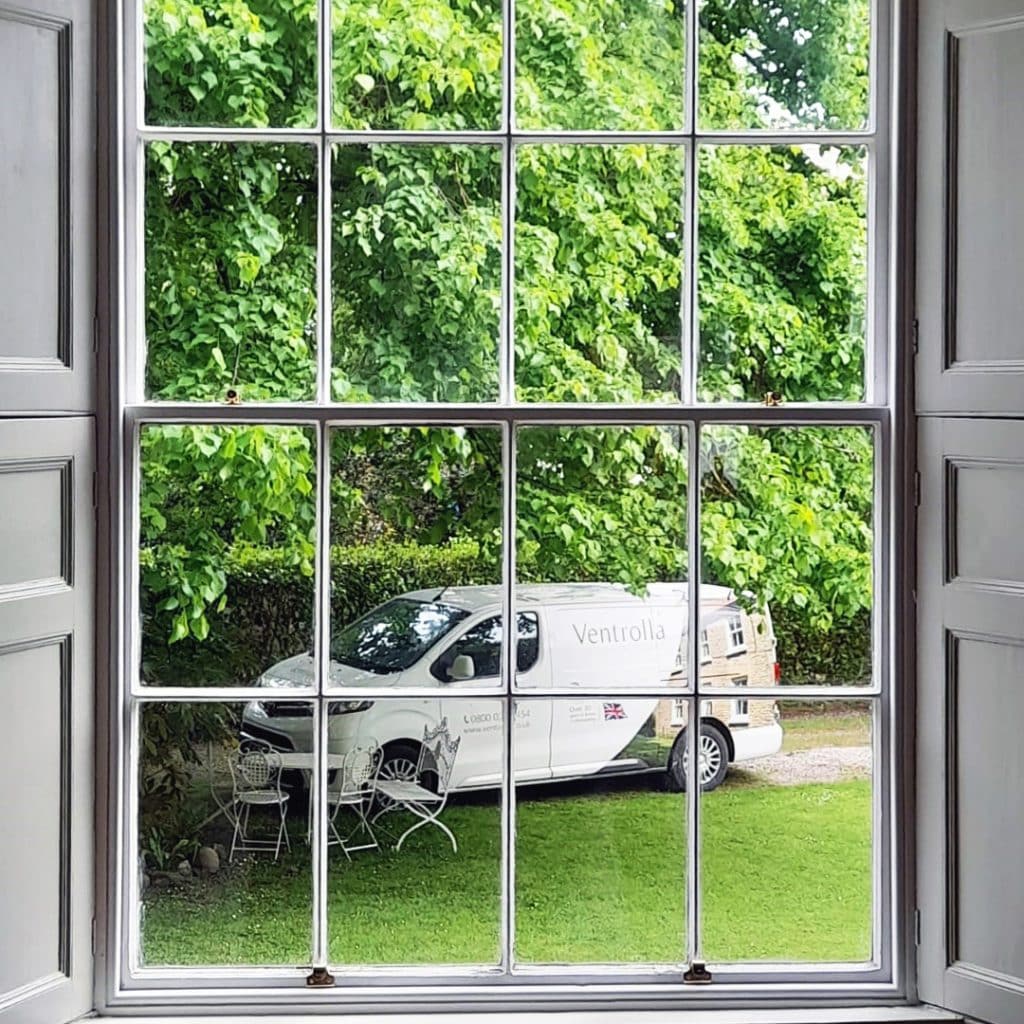Choosing the right windows for your property
Whether you’ve lived in your property for some time or have recently acquired a new home, updating your décor, putting in a new kitchen or adding soft furnishings gives you the freedom to choose style that suits your own taste. But when it comes to replacing windows, it makes sense to be guided by the period of your home: A little research and detective work will ensure you choose the correct style, era and design.
Wooden windows are an integral feature of older homes in the UK. The design detail in the frame, the number of panes, the hardware fitted and the way they open are all indicators of the period of property – and you’ll want to stay true to this if you’re looking to replace them. So what style of window might you have?
Casement windows
Hinged on one side, these windows open outward like a door, operating on a swinging mechanism. They can be found in homes of various periods, including Tudor and Elizabethan. Casement windows can have multiple panes or larger glazing for a clearer view. Either way, they offer excellent ventilation when fully opened. Simple or more ornate, if you require a replacement casement window, a timber window specialist will be able to replicate any original to ensure it’s a perfect match.

Tilt and Turn windows
Opening into a room horizontally and vertically, these dual-hinged windows are a versatile option which allow for greater ventilation as well as being easier to clean. Because they open inwards, they’re also ideal for homes with external shutters. If your period home has tilt and turn windows, you may notice design touches which are in keeping with the era of your architecture – things like detail on the frame, hardware touches or glazing.
Sash windows
An iconic feature in period homes, sash windows can be found in Georgian, Edwardian and Victorian properties. But they all have their own idiosyncrasies. Depending on the era of your home, the detail will be different – so you may have Georgian ‘six over six’ windows, Edwardian windows with multiple panes at the top or Victorian windows with sash horns, for example. Or you could have Yorkshire sliders – an early version of the vertical sliding sash windows we’re more familiar with today – often square in proportion, they can still be found today across the UK.

Cottage windows
As the name suggests, these wooden windows are often found in rural and traditional English cottages. Smaller and simpler in style, they are often casement opening, and feature a number of glazed panes which contribute to the rustic aesthetic. Timber framed and thatched cottages often boast this style of window, which contribute to their charm.
What to look out for
If your original windows are beyond repair (experts, like Ventrolla, can check this for you) or you have added an extension to your property, you may need a new window manufacturing for your home. Listed properties and homes in conservation areas and AONB need to pay particular attention to make sure the detail is just right. But even if your home is not protected, it’s important to preserve the historical integrity of your home by making sure your windows are historically accurate. After all, for period and heritage homes, having sash windows that are in keeping with the style and age of the property can add value, too.

Confused? Ask the experts
Over the years, the team at Ventrolla has been lucky enough to work on a huge range of period properties from the Georgian, Victorian, and Edwardian eras – including terraces, cottages, mansions, villas, schools, hospitals, courts, and historic civic buildings. And as timber window specialists, the selection of window styles that we’re called upon to restore, repair and replace is vast, too. So if you have a question about the timber window style in your property, book a free, no-obligation survey from one of our experts today.
FAQs: Choosing the Right Windows for Your Property
1. What factors should I consider when choosing windows for my property?
When choosing windows for your property, it’s important to consider the period and style of your home. Look at the design details, such as the frame, number of panes, hardware, and how they open, as these can indicate the era of the property. Staying true to the original style will help maintain the historical integrity of your home.
2. What are casement windows?
Casement windows are hinged on one side and open outward like a door. They can be found in homes of various periods, including Tudor and Elizabethan. Casement windows can have multiple panes or larger glazing, providing excellent ventilation. A timber window specialist like Ventrolla can replicate any original casement window for a perfect match.
3. What are tilt and turn windows?
Tilt and turn windows are dual-hinged and open horizontally and vertically. They are versatile, offering greater ventilation and easier cleaning. They open inwards, making them suitable for homes with external shutters. Look for design touches in keeping with the era of your architecture, such as frame details, hardware, or glazing.
4. What are sash windows?
Sash windows are iconic features in period homes and can be found in Georgian, Edwardian, and Victorian properties. Each era has its own unique characteristics, such as the number of panes, sash horns, or specific window proportions. Consult with a member of our team at Ventrolla to ensure the sash windows match the style and age of your property.
5. What are cottage windows?
Cottage windows are commonly found in rural and traditional English cottages. They are smaller and simpler in style, often casement opening, and feature multiple glazed panes. These windows contribute to the rustic aesthetic of timber-framed and thatched cottages, adding to their charm.
6. What should I look out for when replacing windows?
If your original windows are beyond repair or you’ve added an extension to your property, you may need new window manufacturing. Pay particular attention to preserving the historical integrity of your home, especially if it is a listed property or located in a conservation area or Area of Outstanding Natural Beauty (AONB). Historically accurate windows can add value to period and heritage homes.
7. How can I get expert advice on choosing the right timber window style?
Ventrolla specialises in restoring, repairing, and replacing timber windows in various period properties. Our experienced team can offer expert advice and conduct a free, no-obligation survey of your property. Contact us today to get professional guidance on the timber window style that suits your property best.
8. How do I choose a window style for my home?
Choosing a window style for your home depends on various factors, including the period and architectural style of your property. Consider the design details and features that are characteristic of your home’s era. Consulting with a timber window specialist like Ventrolla can help you make an informed decision based on their expertise and knowledge of period window styles.
9. How do I know what window to buy?
Determining the right window to buy involves considering your specific needs, the architectural style of your home, and factors such as energy efficiency, ventilation requirements, and maintenance preferences. Ventrolla’s team of experts can guide you through the selection process and provide recommendations based on your individual circumstances.
10. Does replacing windows add value to a property?
Yes, replacing windows with high-quality, energy-efficient options can enhance the value of your property. Potential buyers often consider the condition and functionality of windows as an important factor. Additionally, energy-efficient windows can lead to cost savings on heating and cooling bills, making your property more attractive to prospective buyers.
11. Does replacing windows make a difference?
Yes, replacing windows can make a significant difference in several aspects. It can improve energy efficiency, enhance indoor comfort by reducing drafts and noise, enhance curb appeal, increase natural light, and provide better security and functionality. Replacing windows is often a worthwhile investment that can transform your living space.
12. Should I replace 30-year-old windows?
The decision to replace 30-year-old windows depends on their condition, energy efficiency, functionality, and your specific goals. If the windows are deteriorating, drafty, or lack modern energy-efficient features, it may be beneficial to replace them. Ventrolla can assess the condition of your windows and provide professional advice on whether replacement is necessary. But will will do everything can to renovate them and preserve the existing windows.
13. Do I need building regulations to replace windows?
In the UK, replacing windows may require compliance with building regulations, depending on factors such as the type of property, location, and specific circumstances. Ventrolla can assist you in navigating the necessary regulations and ensuring that your window replacement project meets all legal requirements. Read more about building regulations and planning permission here.
14. What type of windows last the longest?
Timber windows, when properly maintained and cared for, can have a long lifespan and can last for several decades or even hundreds of years. Ventrolla specialises in timber window restoration and can provide guidance on maintaining and preserving the longevity of your windows.
15. What is the lifespan for a new window?
The lifespan of a new window can vary depending on factors such as the quality of materials, installation, maintenance, and environmental conditions. However, well-made and properly maintained windows can typically last for several decades or even hundreds of years. Timber windows, in particular, can have a long lifespan when cared for appropriately. Ventrolla can provide guidance on maintaining and extending the lifespan of your windows.
16. How much should you spend on windows?
The cost of windows can vary based on factors such as the size, materials, design, and complexity of installation. It’s essential to consider your budget and prioritise quality and energy efficiency. Investing in higher-quality windows may incur a higher upfront cost but can provide long-term benefits, including energy savings and increased property value. Ventrolla can offer tailored solutions to fit your budget and requirements.
17. Is modern double glazing better than old?
Modern double glazing generally offers improved energy efficiency and insulation compared to older windows. Advancements in technology and materials have allowed for better thermal performance and reduced heat loss. If your existing windows are single glazed or outdated, upgrading to modern double glazing can significantly enhance energy efficiency, reduce drafts, and improve overall comfort.
18. Why should old windows be replaced?
There are several reasons to consider replacing old windows. Old windows may be inefficient, allowing drafts, heat loss, and noise infiltration. They may lack modern features like double glazing or low-E coatings, which can improve energy efficiency and comfort. Additionally, old windows may have deteriorated frames, leading to water leaks, rot, or security issues. Upgrading to new, high-quality windows can address these concerns and provide numerous benefits.
19. What are FENSA windows?
FENSA stands for Fenestration Self-Assessment Scheme, a government-authorised scheme in the UK for ensuring compliance with building regulations regarding window and door installations. FENSA-certified installers adhere to strict standards and provide certificates for compliance, simplifying the process of window replacement and ensuring compliance with regulations.
Please note that the information provided is based on general knowledge and practices. It’s always recommended to consult with professionals, such as Ventrolla, for specific advice tailored to your unique circumstances and requirements.
